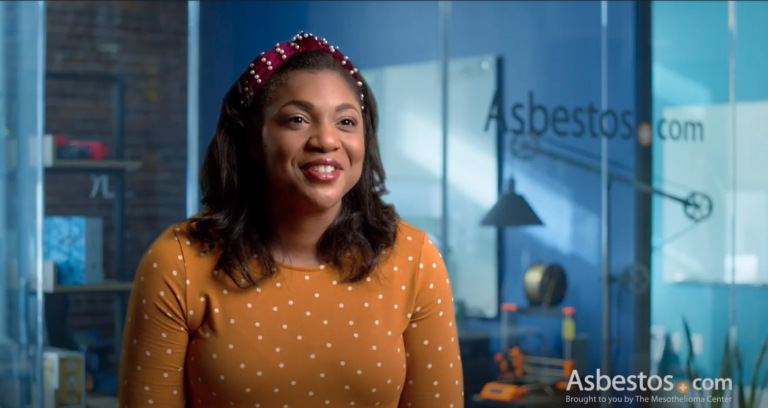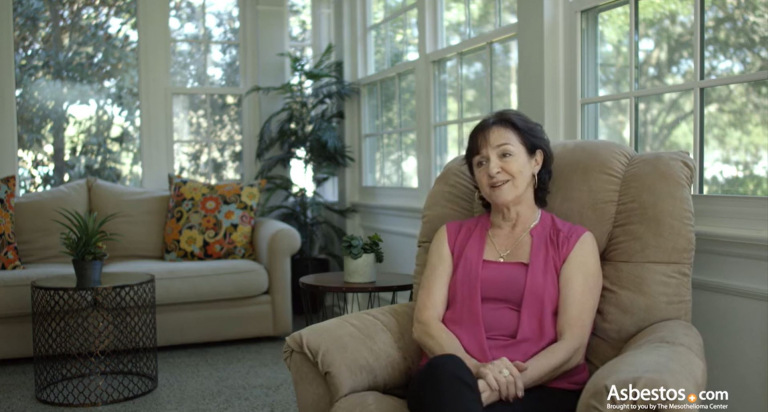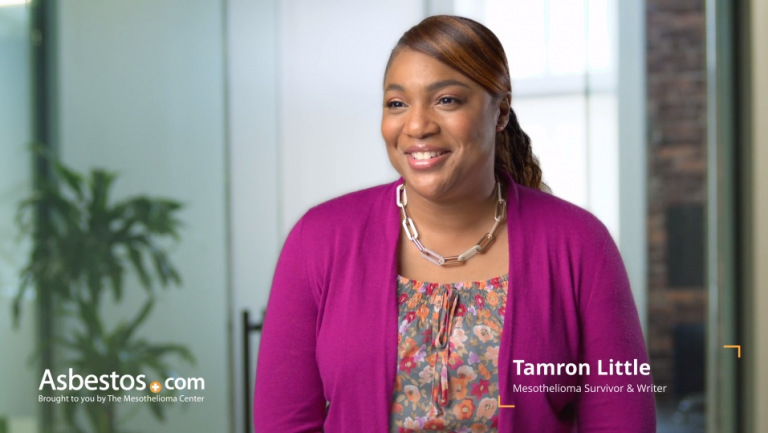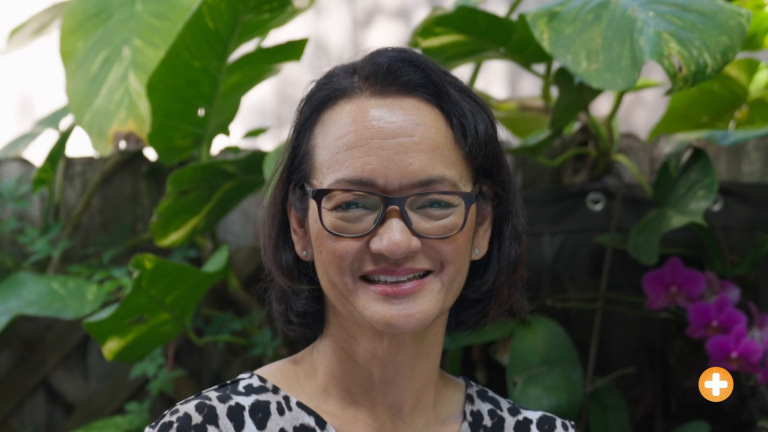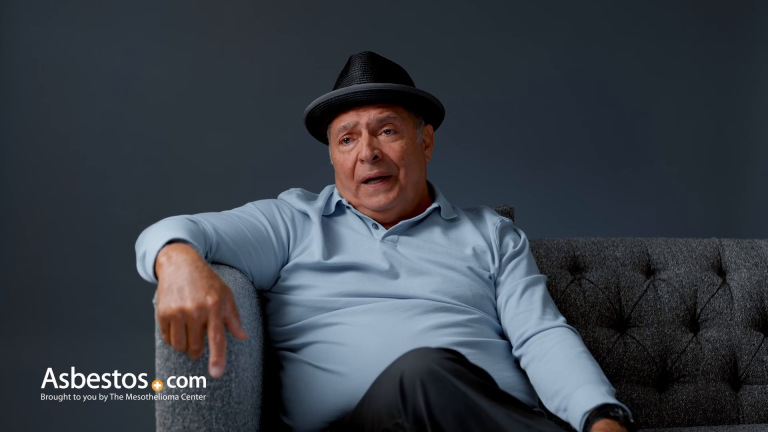Over the last year, I have been able to shine a spotlight on mesothelioma on a national level – especially when I was afforded the opportunity to attend the Cancer Moonshot Forum at The White House. I was just 21 years old when I was told I had peritoneal mesothelioma. Being diagnosed so young is a rarity.
Mesothelioma Awareness
Mesothelioma Awareness Day is recognized every Sept. 26 to raise awareness about this rare cancer and asbestos exposure. It also promotes finding a cure. Supporters wear blue mesothelioma awareness wristbands and ribbons.
What Is Mesothelioma Awareness Day?
The Mesothelioma Applied Research Foundation established Mesothelioma Awareness Day in 2004. Congress first declared Sept. 26 as National Mesothelioma Awareness Day in 2010. The goal is to raise awareness and raise funds for research.
Mesothelioma Awareness Day unites survivors, caregivers and loved ones. It honors those affected by this rare disease. The Mesothelioma Center also recognizes September as Mesothelioma Awareness Month. Supporters observe the day by wearing blue and sharing photos on social media. Many people wear mesothelioma awareness bracelets or ribbons.
Fundraisers and awareness campaigns by groups and advocates aim to spread the word. Events such as iWalk4Meso, Miles for Meso and Kayaking 4 Meso raise funds for research. They also educate the public about the health effects of asbestos exposure.
Every sign of support means a lot to families affected by mesothelioma. In 2024, Mesothelioma Awareness Day will celebrate its 20th anniversary. In the past 20 years, the community has raised awareness. They have called for asbestos bans linked to cancer. They have also connected with cancer specialists and hosted events.
Why Is Spreading Mesothelioma Awareness Important?
Raising awareness is vital because deaths from mesothelioma are preventable. A global asbestos ban can stop exposure and its deadly illnesses.
Awareness events educate the public about the dangers of asbestos exposure. They prevent misinformation about the disease. They also allow doctors to share new data. A 2021 mesothelioma case study published in the Journal of Cutaneous Pathology cited a rare instance of mesothelioma cells spreading to the skin. Knowledge of this rare occurrence can prevent misdiagnosis in other patients.
Even after 40-plus years as a nurse, I knew as much about mesothelioma as the average person — which wasn’t much. Sept. 26 marks Mesothelioma Awareness Day, something I didn’t know existed until I became an advocate for others. That alone shows how much work needs to be done.
Each year, asbestos kills more than 200,000 workers worldwide, according to a 2024 World Health Organization report. The Centers for Disease and Prevention show an estimated 2,500 to 3,000 people in the United States die yearly from mesothelioma. Increasing awareness of mesothelioma helps raise funds for research. It boosts participation in clinical trials. They are low for rare cancers compared to those for breast and prostate cancers.
How Can You Participate in Mesothelioma Awareness Day?
Join community events and activities hosted by local or national organizations. Try walking in a fundraising event, such as Miles for Meso. Or wear an awareness wristband to spread awareness of this rare and deadly cancer.
In 2020, the Mesothelioma Applied Research Foundation held its first Light the World Blue campaign. The annual event promotes shining blue lights around the world for mesothelioma awareness.
MARF encourages everyone to visit a Light the World Blue landmark. Other landmarks across the United States are participating. The organization also hosts a yearly “Paint the World in Mesothelioma Blue” event on Mesothelioma Awareness Day.
- Donate to mesothelioma research and support groups.
- Get involved in online discussions on social media about asbestos.
- Sign up for a mesothelioma event such as Miles for Meso.
- Watch one of The Mesothelioma Center’s educational webinars.
- Wear blue clothing or an awareness wristband to unite with others.
- Write or email your politicians about stricter asbestos laws and regulations.
On Mesothelioma Awareness Day, show your support on social media to raise awareness. Use popular hashtags such as #MesotheliomaAwarenessDay.
Join the discussion on a global asbestos ban. It will celebrate health care providers and researchers. Raising awareness means you support the thousands affected by asbestos-related diseases.
How We Spread Mesothelioma Awareness
The Mesothelioma Center at Asbestos.com is the nation’s most trusted mesothelioma resource. Since 2006, we’ve helped families cope with mesothelioma. We provide resources, support, medical information and help finding financial aid.
- More than half of people diagnosed with the disease turn to The Mesothelioma Center for support every year. The Centers for Disease Control and Prevention’s most recent data show 2,803 new mesothelioma cases in the U.S. in 2021.
- Our Medical Outreach program, Veterans Outreach program and Home Health & Hospice Outreach program.
- Our network of more than 20 mesothelioma survivors, board-certified doctors, and health care professionals write and medically review our content to ensure we deliver the most medically up-to-date information to the mesothelioma community.
- Our Patient Advocate team, which includes a medical doctor, a registered oncology nurse and a U.S. Army veteran, has more than 30 years of combined experience helping cancer patients.
- The annual Alton Miles for Meso 5K and 3K Fun Run/Walk in Alton, Illinois, has a virtual option for global participants. Our Patient Advocates travel to Illinois to take part in person.
- We are the most reviewed organization serving the mesothelioma community. We have five out of five stars from patients and loved ones for our support and resources.
The Mesothelioma Center knows it is vital to protect public health and prevent suffering. We aim to create a world that rejects all forms of asbestos. To achieve that goal, we will raise awareness, mobilize communities and engage policymakers.
The history of mesothelioma shows us that there are misconceptions about the disease. The Mesothelioma Center and others educate the public about mesothelioma and asbestos risks.
Organizations and Events Raising Mesothelioma Awareness
Several organizations are working hard to raise public awareness about mesothelioma. These organizations raise money to fund medical research. They also advocate for a complete ban on asbestos.
Some of these organizations receive government research funding. Others raise money for mesothelioma grants. Some groups hold events, like walks and races. Their goal is to raise awareness and funds for medical research.
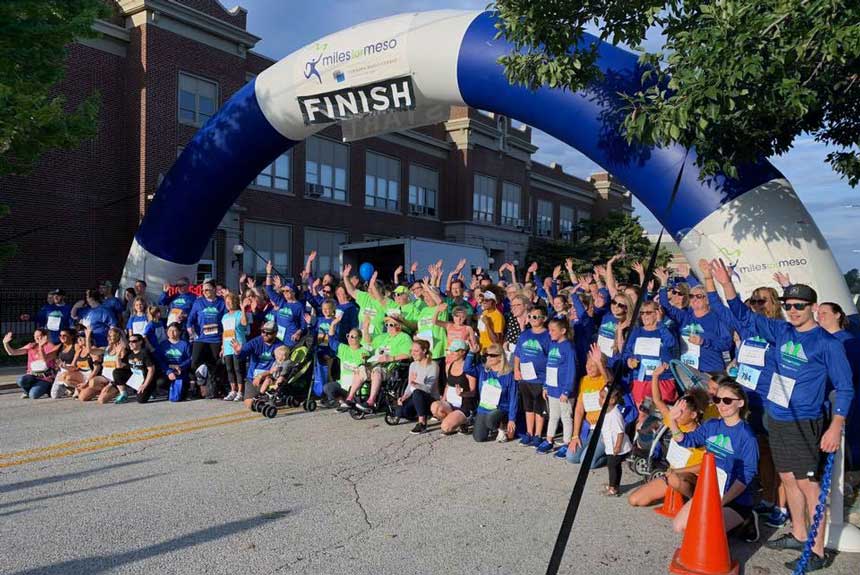
Mesothelioma Education and Research Organizations
Groups worldwide work hard to raise awareness of mesothelioma and its harms. They seek to raise awareness and improve patient outcomes. They want to make mesothelioma preventable and manageable.
- Asbestos Disease Awareness Organization (ADAO). ADAO educates the public on the dangers of asbestos exposure. Founded in 2004 by Linda Reinstein and Doug Larkin, ADAO also advocates protecting children, teachers and faculty from asbestos in schools.
- International Mesothelioma Interest Group. iMiG organizes an international asbestos conference and created the iMiG Research Award. It recognizes work with significance and impact on the future of mesothelioma treatment.
- International Symposium on Malignant Mesothelioma. The International Symposium is a three-day event covering the latest treatment advances. It serves as an informational exchange among researchers, oncologists and surgeons.
- John McNamara Foundation. The McNamara family created a foundation in memory of John McNamara, who died from mesothelioma in 2007. The foundation gives support to people affected by mesothelioma and unites the community.
- Miles for Meso. Launched in 2009, Miles for Meso is a series of nationwide races and walks that spread mesothelioma awareness. The races raise money for improved mesothelioma treatment options. They’ve raised more than $250,000 for research.
- National Asbestos Awareness Week. National Asbestos Awareness Week educates the public about the dangers of asbestos. A conference held the first week of April covers asbestos issues, advancements in treatment for asbestos-related diseases and more.
- Pacific Mesothelioma Center. PMC is a nonprofit that conducts groundbreaking research on mesothelioma treatment procedures. PMC sponsors the annual International Symposium on Malignant Pleural Mesothelioma.
The dedication and advocacy of awareness groups are vital. They ensure that those affected by mesothelioma receive the support they need. These groups drive progress toward better treatments and, ultimately, a cure.
Organizations Advocating to Ban Asbestos
Many groups advocate for a total ban on asbestos. Its health risks are well documented. These groups recognize that the best way to prevent asbestos-related diseases, including mesothelioma, is to eliminate exposure to this harmful mineral.
- Ban Asbestos Network India. Gopal Krishna is the founder of Ban Asbestos Network India (BANI). In 2008, Krishna demanded that records on the dangers of asbestos become public under India’s Right to Information Act. In 2018, BANI advocated for safer working conditions for those who work on asbestos-contaminated ships.
- International Ban Asbestos Secretariat. Founded in 2000, IBAS counters misinformation and provides a platform for victims to speak out. The IBAS website allows concerned individuals to follow the worldwide effort to ban the toxic mineral. IBAS works with organizations in developing countries to help them reach a broader audience.
These organizations strive to make all countries free from asbestos risks. They work to create a safer and healthier world by advocating for an asbestos ban.
Organizations Raising Asbestos Awareness
All awareness groups seek to reduce mesothelioma and other asbestos-related diseases. More than 70 activist organizations spread awareness about the dangers of asbestos.
- Asbestos Disease Awareness Organization
- Asbestos Diseases Foundation of Australia
- Asbestos Diseases Society of Victoria
- Asbestos Victims Association (SA) Inc.
- Asbestos Victims Families Casale
- Asian Ban Asbestos Network
- Associazione Esposti Amianto
- Right on Canada
- Ban Asbestos Canada
- Ban Asbestos France
- Ban Asbestos Network Japan
- Ban Asbestos Network of India
- Ban Asbestos Philippines
- International Ban Asbestos Secretariat
- Associazione Famigliari e Vittime dell’Amianto
- Asociación Argentina de Expuestos al Amianto
- Associacão Brasileira dos Expostos ao Amianto
- Association Belge des Victimes de l’Amiante
- Greater Manchester Asbestos Victims Support Group
- Association Nationale de Défense des Victimes de l’Amiante
- Asian Network for the Rights of Occupational Accident Victims
Advocacy groups for mesothelioma patients and their families are vital. They provide key support, resources and help. They aim to help asbestos victims. They want to build a community to spare future generations from similar illnesses.

Gain access to top mesothelioma doctors and get help scheduling appointments.
Connect NowSurvivors and Caregivers Who Have Helped Spread Mesothelioma Awareness
Many mesothelioma survivors are now advocating for others on a similar journey. Doctors diagnosed Tamron Little with peritoneal mesothelioma at the age of 21. She wants to inspire others by sharing her journey as a survivor. Tamron has been a featured participant in several Mesothelioma Center webinars. She has been a key speaker at health forums. Tamron uses social media to raise awareness about mesothelioma.
Michael Cole writes about his firsthand experience with mesothelioma. Through his stories, he hopes to inspire others and offer hope. Michael wants to educate everyone about the dangers of asbestos. He wants to stress the need for early mesothelioma detection and treatment.
Kevin Hession remains passionate about sharing his story with the world. Doctors diagnosed Kevin with pleural mesothelioma in August 2021. He now shares encouragement and raises awareness. He wants people to know they’re not alone in their mesothelioma journey.
You can help raise awareness by joining MARF’s Light the World Blue campaign. The organization wants at least one landmark in every state lit up in blue on mesothelioma awareness day. More than 70 landmarks across the country take part. If there isn’t a landmark in your state, contact the landmark’s office and see if they take lighting requests.
Common Questions About Mesothelioma Awareness
- What is the color of mesothelioma cancer awareness?
-
Blue is the color of mesothelioma awareness. Supporters wear blue awareness wristbands or ribbons. Many supporters also wear bracelets, necklaces and clothing. Show support for mesothelioma patients, and promote the message by sharing photos on social media.
- What are some ways I can support mesothelioma survivors?
-
Join races that raises funds for medical research. Miles for Meso and iWalk4Meso offer virtual options. Supporters may call their political representatives to insist on an asbestos ban in the U.S.
Sharing awareness on social media also helps support mesothelioma survivors. The Asbestos Disease Awareness Organization often hosts chats on Twitter. Survivors, supporters and experts can connect and share information. Donating to organizations also helps advocate for the mesothelioma community.
- When is Mesothelioma Awareness Month?
-
September is recognized as Mesothelioma Awareness Month, when advocates and supporters rally together to raise awareness about this devastating disease. Throughout the month, individuals and organizations engage in various activities and initiatives, such as educational campaigns, fundraising events and community gatherings. Supporters spread knowledge, share resources and assist those affected by mesothelioma.
- How can I stay informed on the latest mesothelioma treatment advances and asbestos legislation?
-
Asbestos.com regularly publishes news stories about new laws, breakthrough treatments and clinical trials. Our regular mesothelioma webinars are another resource for newly developed treatment options.

